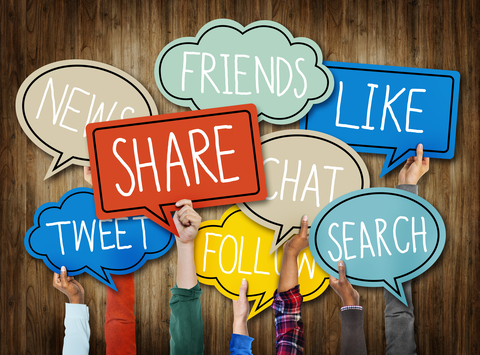One of the most complicated issues to navigate as a parent is deciding how much to shield our kids from potentially harmful influences. Or similarly, deciding how much freedom to give them. Today, social media usage is perhaps the most pressing place where parents must navigate this issue. In this post, we’ll explore how social media is impacting mental health and look at some steps we can take to help our kids use it well.
Social media is widespread and is increasingly popular among children, teens and young adults. According to a recent article, young adults between 16-24 spend over 3 hours a day and adults between 25-34 follow close behind at over 2 and a half hours a day on social media. At a basic level, social media offers a platform to share about our lives and to interact with others online. But as most people can attest to, social media has grown to be much more than that in recent years. With all the time being spent on social media on a daily basis, there is a growing interest in studying what impact social media is having on the younger generation.There is some evidence to suggest an increase in depression, anxiety, and loneliness related to our constant usage.
Relationships
Social support and quality friendships are important in decreasing the risk of mental health issues, specifically depression. Today, our society seems to be wrestling with the question of whether social media is improving our connectedness or not. We’re all in need of connection, and while there are opportunities to connect in a meaningful way online, scrolling through others highlight reels may only reinforce our feelings of loneliness and isolation. As parents, it’s one of our responsibilities to teach and model high-quality friendships to our kids.
Here are some questions to ask yourself:
- Do your kids see you talking to or spending time with friends?
- When they are sharing about their friends, do you ask follow-up questions about who that person is and what they care about to help your kids think this way as well?
- Do you create opportunities for your kids to spend time with friends face-to-face instead of just online?
Anxiety
Anxiety has also been on the rise for kids and young adults as there is the ability and desire to constantly check our phones for social feedback. Young adults in a recent study expressed anxiety related to not being able to check their social media accounts and reported checking their phones constantly. Because social media offers social approval indicators through likes and comments, we all feel more inclined to check-in and to make sure we’re not missing anything. As parents, it’s our role to help younger kids set boundaries over how they use their phones. By establishing healthy boundaries for phone and social media usage, we can help our children to experience the more satisfying reward of real-time social approval and connection, which is ultimately much deeper than the satisfaction of likes or comments Instagram.
Here are some more questions to think through:
- Am I modeling appropriate boundaries on how often I check my phone? Have I put screen time limits on my own phone? On my kids’ phones?
- Are their family rules/rhythms we can put in place to increase connection and decrease screens? For example, can we all keep our phones away during dinner time?
- When I feel anxious, do I turn to my phone to numb the feeling? Have I ever talked to my children about healthier ways to deal with that gnawing feeling of anxiety?
So how much is too much? It’s important to remember that kids want and need boundaries to help them to feel safe. It’s important to know your child and to adjust expectations developmentally, but there are some guidelines. Setting consistent limits and enforcing screen-free times as a family is a good place to start. Recent research found that limiting social media use to 30 minutes a day resulted in decreased depression and loneliness. Another great resource is creating a free Family Media Plan, created by the American Academy for Pediatrics.
Bottom Line
Social media can be a tool to connect us to those in our circles and to the world around us. We all need help setting boundaries on our usage so that we are in control of social media instead of allowing it to control us. It is important to have direct conversations with our children about what they’re doing and who they’re talking to online. We also need to affirm that their worth does not come from how many likes they get or who their “best friend” is on each platform. Parents have the responsibility to model the healthy behaviors they want their kids to practice. The earlier you can start these conversations and the more you can be involved with what they’re posting and who they are interacting with, the healthier their relationship with the online world can be.

